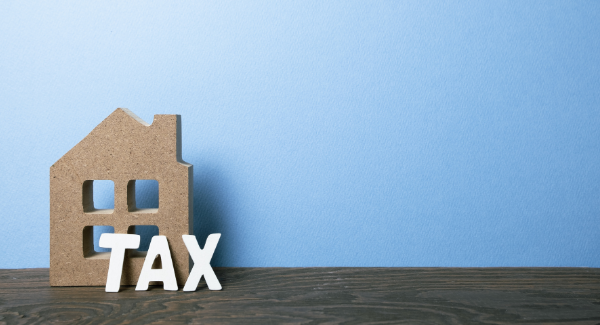Take outs:
-
To qualify for the main residence exemption from Capital Gains Tax (CGT) in Australia, the property must be your primary home where you live, store personal belongings, receive mail, and have utility connections. Intent to make it your main residence is key, though duration of stay is flexible.
-
Using the property for income, such as renting it out or running a business, generally leads to a partial CGT exemption. Recent changes require platforms like Airbnb to report transactions to the ATO.
-
Foreign residents cannot claim the main residence exemption, but Australian residents can if they meet all criteria at the time of sale, even if they were non-residents during part of the ownership.
-
The ‘absence rule’ lets you keep main residence status for up to 6 years if rented out, or indefinitely if not. There are specific timing rules for when a property is considered a main residence, especially if you own multiple properties.
Is Your Family Home Really Tax-Free?
The main residence exemption typically excludes your family home from capital gains tax (CGT) when sold, but the rules can be complex. But, like all things involving tax, it’s never that simple.
The Australian Taxation Office (ATO) views your main residence through the lens of what you consider a home. Typically, a property is regarded as your main residence if:
- It's where you and your family live
- Your personal belongings have been moved into the dwelling
- It is where your mail is delivered
- It’s your address on the electoral roll
- You have connected services such as telephone, gas and electricity (in your name); and
- It is your intention for the home to be your main residence.
The duration of your stay in the home is relevant, but there are no strict rules. Your intent is more crucial than the length of time lived, as each situation varies.
When Does the Main Residence Exemption Apply?
Capital Gains Tax (CGT) generally applies when you sell your home, unless you qualify for an exemption, partial exemption, or can offset the tax with a capital loss.
As an Australian resident for tax purposes, you can fully utilise the main residence exemption if:
- Your home was your main residence for the entire period of ownership (see "Can the main residence apply if you move out?"); and
- You did not use the property to generate income (see "Partial exemption"); and
- The land on which your home sits is 2 hectares or less. For properties larger than 2 hectares, such as farmland, the exemption covers the home and up to 2 hectares of adjacent land.
Partial Exemption
If you’ve used your home to generate income, you generally won’t qualify for the full main residence exemption, though you might be eligible for a partial exemption.
Common situations that affect your main residence exemption include:
- Running a business from home (working from home is acceptable), and
- Renting out all or part of your home.
In these cases, the portion of your home used for income generation is likely to be subject to CGT. Additionally, starting from 1 July 2023, platforms like Airbnb are required to report all transactions to the ATO every six months. This information will be cross-referenced with income reported on tax returns.
Foreign Residents and Changing Residency
Foreign residents are ineligible for the main residence exemption, even if they were Australian residents for part of the time they owned the property.
If you are a non-resident when you sign the contract to sell the property, you generally cannot claim the main residence exemption. However, if you are an Australian resident at the time of sale and meet all other eligibility requirements, you can still access the exemption, even if you were a non-resident during some of the ownership period. For instance, an expat who maintains their main residence in Australia could return, regain tax residency, and, if eligible, claim the main residence exemption upon selling the property.
Remember, the residency test refers to your tax residency status, not your visa status. Australia’s tax residency rules can be intricate. If you have any doubts, please contact us for assistance in navigating these rules.
Can The Main Residence Apply if You Move Out?
You may have heard of the ‘absence rule’, which allows you to maintain the status of your home as your main residence for tax purposes under the following conditions:
- For up to 6 years if the home is rented out and used to generate income while you are away; or
- Indefinitely if the home is not used to generate income.
However, applying the absence rule generally means you cannot claim the main residence exemption for any other property you own during the same period, with some exceptions. The other property could be subject to CGT.
For example, if you moved overseas in 2020 and rented out your home while you were away, then returned to Australia in 2023 and resumed living in your house, but decided to sell it in early 2024, you can apply the absence rule if no other property was treated as your main residence during your absence. Provided you meet all other eligibility criteria and are a tax resident at the time of sale, you should be able to claim the full main residence exemption.
The 6-year period will reset if you re-establish the property as your main residence and then later stop living there. This means that the exemption may still be available for each 6-year absence period, provided all other conditions are met.
Timing
Your home is typically regarded as your main residence from the moment you start living there. However, if you move in as soon as practical after settlement, it is considered your main residence from the acquisition date.
If you buy a new home but haven't yet sold your previous one, you can treat both properties as your main residence for up to six months without affecting your eligibility for the main residence exemption. This is only applicable if your old home was your main residence for at least three continuous months within the year prior to its sale and was not used to generate income during that time.
Should the sale of your old home extend beyond six months, the main residence exemption may apply to both properties only for the last six months before the sale. For the periods before this, you might need to choose which property is designated as your main residence, with the other potentially subject to CGT.
If your new home is being rented out when you purchase it and you have not yet moved in, it will not be considered your main residence until you do.
If unforeseen circumstances, such as a hospital stay or work assignment overseas, prevent you from moving in immediately, you may still qualify for the main residence exemption from the time of acquisition, provided you move in as soon as possible once the issue is resolved. Simple inconvenience will not suffice, and you should maintain documentation to support your claim.
Can a Couple Have a Main Residence Each?
If you and your spouse each own homes that you have individually established as your main residences, you cannot claim the full CGT exemption on both properties. Instead, you have two options:
- Designate One Residence: Choose one of the homes to be the main residence for both of you during the relevant period.
- Nominate Different Residences: Each of you can nominate a different home as your main residence for the period.
If you choose different residences, the exemption will be divided as follows:
- For Ownership of 50% or Less: If you own 50% or less of the property designated as your main residence, it will be considered your main residence for that period, and you will receive the main residence exemption based on your ownership share.
- For Ownership of More Than 50%: If you own more than 50% of the residence, it will be considered your main residence for half of the period during which you and your spouse had separate homes.
This rule applies to each property, regardless of how the ownership is structured—whether held solely, as tenants in common, or as joint tenants. The same provisions apply to your spouse.
What Happens in a Divorce?
If a home is transferred to one spouse (and not to or from a trust or company), and both parties used the property exclusively as their main residence during their ownership, with all other eligibility criteria satisfied, a full main residence exemption should apply when the property is eventually sold.
However, if the home only qualified for the main residence exemption during part of the ownership period for either spouse, a partial exemption may apply. In such cases, the spouse receiving the property might have to pay CGT on the gain attributable to their share of the property when they eventually sell it.
While the main residence exemption might seem straightforward, it can become quite complex. Understanding and applying the exemption requires more than just a general sense of it; it involves navigating detailed rules and regulations.
Share this
You May Also Like
These Related Stories

Everything you need to know about minimising your investment property tax (capital gains tax)

Earning an income from overseas? Understanding international tax agreements

/Brand/Logos/Kelly%20Partners%20Accountants%20Logo/Kelly-Partners-Accountants-Horizontal-Logo.webp?width=1500&height=212&name=Kelly-Partners-Accountants-Horizontal-Logo.webp)